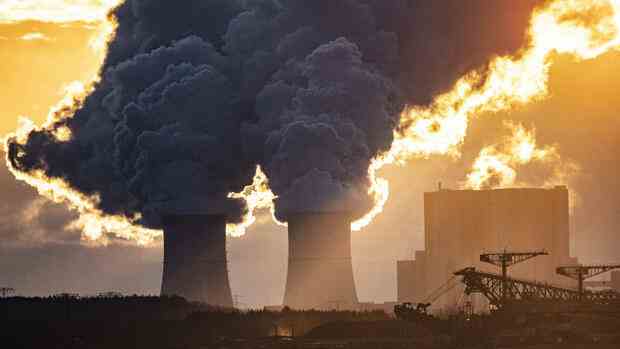There is no time for the real and urgently needed modernization.
(Photo: IMAGO/photothek)
After a year of energy crisis, great exhaustion is spreading throughout the industry. This can be seen, for example, in large energy suppliers such as Eon, EnBW and a number of municipal utilities. First they had to spontaneously take on thousands of new customers because cheap competitors had gone bankrupt. At the same time, they could hardly afford to buy the scarce goods electricity and gas themselves.
Then they had to implement the gas levy announced by the federal government, through which every gas consumer was supposed to pay a few cents extra – and which was then collected again, although the suppliers and their customers had already prepared for it. And finally came the electricity and gas price brakes, the implementation of which is so complex that it is still driving many energy suppliers to despair and overload.
The problem: There is no time for the real and urgently needed modernization. Every day that the industry invests to cushion the impact of the energy crisis is wasted in the fight for the energy transition and against climate change.
Actually, energy suppliers should offer their customers dynamic electricity tariffs. This should enable consumers to get electricity cheaply when there is a lot of green electricity from the sun and wind in the grid – and pay dearly for it when it is scarce. An important step towards a completely green power supply.
But because of all the crisis management, many electricity providers have postponed the development of such tariffs. They only offer the tariffs superficially on their websites – so well hidden that hardly any consumer can find them, and so complicated to conclude that the few interested parties give up quickly, frightened.
Ambitious legal requirements do not yet create a new Germany speed
The federal government has also found little time for the topic of energy transition in recent months due to all the crisis management. LNG terminals have been built, the German energy supply has been saved, as has the important gas importer Uniper. But projects like the accelerated expansion of renewable energies are making little progress.
Ambitious legal requirements do not yet create a new Germany speed.
It is a pattern that seems to be emerging in many places: the energy crisis has priority, the climate crisis will have to wait. In the immediate threat of a possible gas shortage, that seemed understandable.
But now it is time to reorganize the resources and focus them more on the important topic of energy transition. Ambitious legal requirements do not yet create a new Germany speed.
It is important to implement concepts such as dynamic electricity tariffs not only in law but also in practice. To do this, IT processes must be adapted, consumers must be advised and habits must be changed. All of this costs a lot of time, money and personnel. Real change can only happen if these conditions are met.
More: How Habeck wants to revive the photovoltaic industry.
